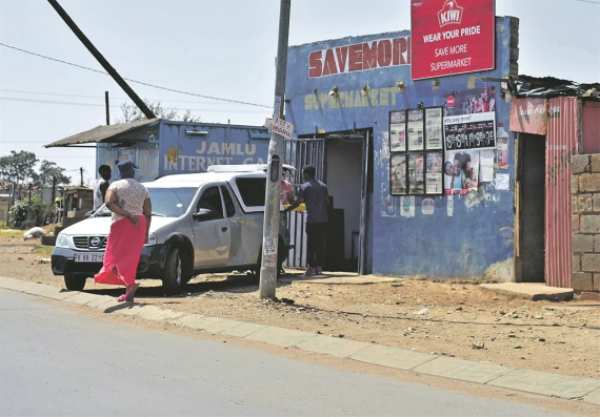As the Covid-19 pandemic continues to wreak havoc on South Africans, and the country’s healthcare system and economy in its second wave, BusinessTech approached several of the top medical aid providers to understand how the coronavirus impacted membership in 2020.
South Africa is in the process of procuring a vaccine, with medical insurance companies, business organisations and the government developing a programme to help fund its procurement.
According to the Council for Medical Schemes (CMS), there are about 4.05 million registered members of different medical schemes, serving a total of 8.94 million beneficiaries. This is about one in six of South Africa’s population of nearly 60 million.
Discovery
Less than 6% of Discovery Health Medical Scheme (DHMS) chose to change their medical aid plans at the end of 2020, 3% upgrading for greater benefits and 3% downgrading.
“Members that downgrade their plan choice do so for many reasons, including affordability, changing healthcare needs, a change in the subsidy they receive from an employer, or a change in the family e.g. students leaving their parents’ plan and moving to their own plan,” the group said.
Discovery said it has not picked up any new member trends during the Covid-19 period, when compared to previous years.
It said that it does not foresee the pandemic changing the industry-wide trend of annual membership.
“In fact, DHMS saw fewer members leaving the scheme during 2020 in comparison to previous years, as a result of members prioritising their membership of DHMS during the pandemic,” Discovery said.
DHMS, the group said, maintained its membership levels during 2019, and increased its market share from 56.7% on 31 December 2018 to 57.1% on 30 June 2020.
In the first half of 2020, DHMS maintained its memberships levels.
Government Employees Medical Scheme (GEMS)
GEMS principal officer Dr Stan Moloabi, said that membership grew at a “significant pace” before the pandemic.
The biggest restricted medical scheme in the country added 53,102 beneficiaries during the 2019/20 financial year. Its growth continued when the pandemic broke out as membership, increasing from 727,840 in February 2020, to 750,980 members by the end of 2020.
Dr Moloabi said that the higher growth was largely due to GEMS enhancing it’s flagship option, Tanzanite One, which includes an unlimited number of generation practitioner consultations and in-hospital benefits within private hospitals.
GEMS said it funded over six million general practitioner consultations, three million specialist consultations and four hundred thousand hospital admissions last year. It has also funded 570,000 Covid-19 tests and nearly 30,000 related hospital admissions.
Moloabi said another factor in its growth is more people “perceiving value in having access to private healthcare” during the pandemic. However, he pointed out that members are increasingly moving to more affordable options, due to the economic downturn.
Bonitas
Bonitas pointed to a net loss of 0.6% of its membership during 2020, bringing its members and beneficiaries in December last year to 713,407.
Bonitas Medical Fund principal officer Lee Callakoppen said this was “significantly lower than anticipated”.
Callakoppen ascribed this to increased support during the first stages of the Covid-19 lockdown via virtual care, online and WhatsApp self-service channels, and the delivery of chronic medication.
Of its total members, 10,019 changed their membership plans in 2020 – 61.9% of those were downgrades to more affordable plans.
There was an increase in mid-levels plans such as Primary, Primary Select, BonSave and BonFit plans, the group said.
“The movement between plans is mainly from plans offering comprehensive cover to plans covering mid-levels of cover,” Callakoppen said.
Some of the changes they made in 2020 was to fund all Polymerase Chain Reaction (PCR) tests for Covid-19, the treatment of Covid-19 patients at home and in hospital.
Meanwhile, there was a decline in elective surgery and a change in claiming patterns and patient behaviour too.
“We do anticipate that once the lockdown and second wave eases, that there will be change in claiming patterns once again,” Callakoppen said.
“Medical aid is often viewed as a grudge purchase but the pandemic has firmly indicated that access to quality healthcare is essential.”
Bestmed
Bestmed said it grew its membership and beneficiaries in 2020. It noted that it is unable to disclose its latest membership numbers, as it’s financial year ended December and will only be available later in 2021.
Madelein Barkhuizen, Bestmed executive sales and marketing manager, said: “terminations were low in 2020 compared to previous years.”
Some members opted for lower cost options while others left because of death, new jobs and a change in marital status. These downgrades were largely because of members wanting to save money as the Covid-19 pandemic hammered the world and local economy.
Bestmed saw its members claiming less for discretionary and elective healthcare during lockdown.
“The extent and duration of this decrease remains uncertain and it is possible that the procedures have been delayed rather than cancelled,” Barkhuizen said.
Momentum
Damian McHugh, executive marketing head at Momentum Health Solutions, said it has seen consumers prioritising healthcare by doing what they can to keep their medical scheme membership.
Despite this, Momentum reported a dip in membership citing affordability.
“The members income has reduced as a result of the impact of Covid-19 however, it is anticipated that this decrease could have been more severe,” McHugh said.
Some Momentum members moved to other membership plans “as is generally the case”, while others opted to change their service providers within a medical option to pay less for the same cover.





